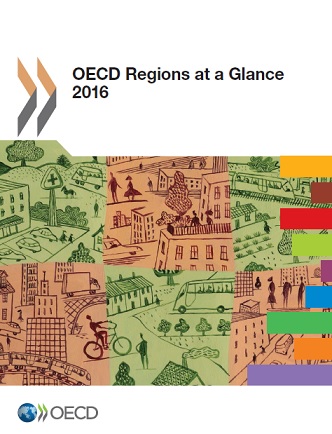Carammia, Marcello, Princen, Sebastiaan, Timmermans, Arco, (2016), “From Summitry to EU Government: An Agenda Formation Perspective on the European Council”, Journal of Common Market Studies, Volume 54 Issue 4, Jule While some observers have claimed that the European Council has become the key institution in European Union politics, others have argued that the Council’s role has remained relatively stable over time. In this article, we argue that an analysis of agenda formation dynamics …Read More
Is the EU really run by unelected bureaucrats?
Hix, Simon, (2016), “Is the EU really run by unelected bureaucrats?”, LSE Europpblog, June Much of the UK’s referendum debate has focused on the extent to which EU decision-making is democratic, with the European Commission a source of particular criticism from leave campaigners on the basis that it is unelected. Simon Hix writes that while there are legitimate problems with the EU’s system of democracy, there is little to justify the …Read More
Improving the measurement of material deprivation at the European Union level
Guio, Anne-Catherine, Marlier, Eric, Gordon, David, Fahmy, Eldin, Nandy, Shailen, Pomati, Marco, (2016), “Improving the measurement of material deprivation at the European Union level”, Journal of European Social Policy, June In June 2010, European Union (EU) Heads of State and Government adopted a social inclusion target as part of the new ‘Europe 2020 Strategy’: to lift at least 20 million people in the EU from the risk of poverty and exclusion by 2020. One of the three indicators used to monitor …Read More
Missing Topic In #EUref: Neo-Liberalism Gone Too Far
Vivien Schmidt, (2016), “Missing Topic In #EUref: Neo-Liberalism Gone Too Far”, Social Europe, 22 June As the referendum campaign nears its end, one central issue is remarkable for its absence, despite the fact that it has been a major contributor to the anger that lends support to the Brexit camp: neo-liberalism. The revolt against the political parties, the rejection of the experts, the distrust of the elites more generally: all …Read More
Optimal Automatic Stabilizers
McKay, Alisdair, Reis, Ricardo, (2016), “Optimal Automatic Stabilizers”, Centre for Economic Policy Research, June Should the generosity of unemployment benefits and the progressivity of income taxes depend on the presence of business cycles? This paper proposes a tractable model where there is a role for social insurance against uninsurable shocks to income and unemployment, as well as inefficient business cycles driven by aggregate shocks through matching frictions and nominal rigidities. We derive …Read More
A New Economic Paradigm To Fight Populism
Thomas Fricke, (2016), “A New Economic Paradigm To Fight Populism”, Social Europe, 21 June If the polls tell the truth, 86 percent of the Austrian blue-collar workers voted for the right-wing populist Norbert Hofer in the Austrian presidential elections in May. In the presidential elections in France Marine Le Pen would have reached the final round already back in 2012, had it been up to the blue-collar workers. In the …Read More
Competition policy and inclusive growth
Ilzkovitz, Fabienne, Dierx, Adriaan, (2016), “Competition policy and inclusive growth”, Voxeu, 19 June Firms with greater market power can behave monopolistically, and recent research suggests that declining market competitiveness is driving income inequality. While competition authorities already measure the overall impact of their interventions by using customer savings, these measurements do not account for indirect effects of intervention. This column introduces a DSGE model to model competition policy interventions as a negative …Read More
Europe’s Wake-Up Call
Merritt, Giles, (2016), “Europe’s Wake-Up Call”, Project Syndicate, 20 June There’s a silver lining to the dark clouds of populist Euroskepticism crowding in on the European Union. In Brussels and a number of Europe’s capitals, leaders know that the EU must respond to mounting discontent, and that – at long last – there is political capital to be gained in doing so. Relevant Posts Balfour, Rosa, Emmanouilidis, Janis A., Fieschi, Catherine, et al., (2016), “EUROPE’S TROUBLEMAKERS …Read More
OECD Regions at a Glance 2016
OECD, (2016), “OECD Regions at a Glance 2016”, OECD Publishing, 16 June OECD Regions at a Glance shows how regions and cities contribute to national economic growth and well-being. This edition updates more than 40 region-by-region indicators to assess disparities within countries and their evolution over the past 15 years. The report covers all the OECD member countries and, where data are available, Brazil, People’s Republic of China, Colombia, India, …Read More
Employment and wage insurance within firms: Worldwide evidence
Ellul, Andrew, Pagano, Marco, Schivardi, Fabiano, (2016), ” Employment and wage insurance within firms: Worldwide evidence “, Voxeu, 17 June Most countries feature some form of government-provided unemployment insurance, but there is an alternative provider of insurance for employees – the firm they work for. This column asks whether the provision of implicit insurance by family firms in particular to employees is a substitute for the provision of explicit insurance by governments. Family …Read More





